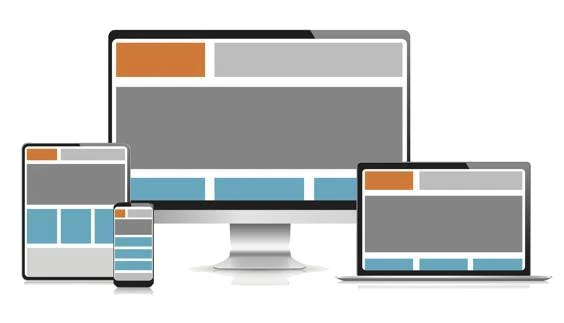Opportunities in Online Learning Business - A Modern Online Learning Experience That Employees Will Use, Love, And Apply
If you are in an industry where you can sell your product or service online as an e-learning course, then you should start researching this business model now.
Online learning in the current scenario is not just providing convenience to the students and teachers but also to the working professionals.

How Do Online Learning Websites Work?
Let’s overview what businesses, teachers, and students expect from a newly developed online education website.
From the Business Perspective
Whether you are nursing an idea to build an online learning platform, or you already have an MVP, or a live education project, your project must deliver:
-
Quality learning: Any educational institution is as good as the quality of knowledge it offers. Positive and productive learning experiences help to make a resource viral and to increase retention and recommendations.
-
Bigger audience: User-friendly educational websites reach more users and attract new students from remote locations. To grow, a business needs to expand its customer base and enter new markets.
-
Accessibility: This is particularly topical for businesses that invest in corporate microlearning. Such platforms allow turning day-release training into when-the-time-is-right training.
-
Cost efficiency: Virtual schools are known to be less expensive than traditional brick-and-mortar campuses. There are no buildings or grounds, and no bills for heating, maintenance, etc. Incorporate learning, online education means having a trained workforce while saving on offline classes. It also implies the ability to save on employee and tutor travel and accommodation, extra salaries, etc.
-
Profit: The variety of online platform types dictates the choice of monetization options. But where does the money come from?
In brief, there are three common ways to monetize an online education platform:
Advertising: Advertising in mobile or web applications must not be annoying. However, displaying some relevant audience-specific banners or promoting sponsored courses from companies can be reasonable.
Corporate subscription: You can connect with universities and companies and invite them to educate their students/employees through your platform, paying a subscription fee for using the software.
Freemium model: This model allows you to offer free courses but provides optional premium services: one-to-one lessons with a tutor, specific learning materials, and paid certifications. This model fits self-paced courses, as no schedule and no online webinars are required.
From the Student’s Perspective
For some, an online website is a means to get a degree. Other learners go online to develop soft skills, complete employee training, etc., from the comfort of their homes.
Consequently, the online student will expect from an educational website:
-
Lower tuition costs: Cognition comes through comparison. Online learning brings more affordable classes and courses compared to offline learning.
-
Flexibility: Online classes introduce self-paced learning, and users can study anywhere and anytime: lunch break, having a coffee, traveling… Any place that has an Internet connection is the right place. Such solutions should run seamlessly on any device.
-
Progress reports: The visualized finite nature of studies triggers involvement. Assessment and scoring bring a sense of achievement without the pressure of taking an actual exam.
-
Networking: Communities are an effective means of gathering like-minded students, creating competition, and increasing information retention. Discussions, exchange of questions, and ideas all contribute to more insightful learning.
-
Certification: The sense of achievement is greater when the learner gets to the end. Printable or sent-by-mail official certificates and diplomas bring the desired feeling of self-fulfillment.
-
Online Support: Feedback is motivational, especially from professional educators. Besides instant contact with the tutor during a course, chat support helps to ensure a positive experience with a platform.
From the Teacher’s Perspective
Students’ expectations such as flexibility and mobility closely correlate with those of the tutor. Distinctly, virtual tutors go by the following benefits:
-
Content creation and distribution: Often, EdTech platforms offer integrated drag-and-drop or other constructor functionality to assemble video tutorials and other materials easily.
-
Worldwide reach: Teachers are interested in developing their portfolios and spreading the word about their classes; eLearning platforms allow teachers to engage with bigger audiences and increase their profit.
-
Multiple knowledge monetization options. During this period of uncertainty, online learning is Picking up steam: According to the Distance Education Enrollment Report, over 6 million students are currently involved in online education, and virtual tutors are in high demand.
-
Simplified digital classroom management: Online classrooms bring more effective workload management, higher readability of info, and convenient discussion threading. Tutors can attach network etiquette requirements and roles of tone to establish proper communication standards.
5 Reasons Why You Should Start an eLearning Business Right Away

We could have come up with more than five reasons but we’re going to stick to the most prominent ones. Below mentioned are the reasons why you should build an e-learning website right away!
1. eLearning Industry Has High Prospects In the Future
During the year 2019, the eLearning market was valued at approximately $144 billion while during the year 2026, it is expected to cross $370 billion. On calculating the growth percentage, it was an astonishing 159%!
This is one reason why a lot of individuals are looking forward to building an e-learning platform and entering the online learning industry race!
2. eLearning Businesses Are Highly Profitable
A business is all about how much money it can make and what it stands for. eLearning businesses like Udemy and Coursera make huge profits today. In fact, Udemy’s estimated annual revenue is $775 per year. For a company that was started in 2009, this is great revenue!
On the other hand, Coursera is only a decade old and it witnessed revenue of an estimated 293 billion dollars. That’s how profitable the e-Learning industry is right now!
3. Advanced e-Learning Business Platforms Availability
You don’t have to hire developers to build an e-learning website from scratch! These days, you get custom e-learning platform solutions that come with almost every feature you need. You’ve just got to choose the one that suits your needs, requirements and the budget of course!
Those are 5 solid reasons why you should create an e-learning website now! Now that you know this, it’s time we take a dive into the most common e-learning business models!
4. Diverse Course Options to Choose From
There’s always a lot to learn! A person who is skilled at something might not necessarily be skilled at everything else.
When it comes to teaching online, you get to choose from a diverse range of course options. And you have a wide audience to receive them as well! Here are a couple of online course ideas,
-
Digital Marketing
-
Copywriting & Content Marketing
-
Programming & Development
-
Robotics
-
Culinary Courses
-
Personality Development
-
Communication Development Courses
-
First Aid & Survival Courses
-
We could go on all day! But you should have got the idea by now.
5. Students Find Online Courses More Flexible
Enrolling in a skill class where a person should be physically present requires commuting and being present on time. Since most of these classes are conducted in group sessions, the student does not get the opportunity to reach out to the tutor or clarify extensive doubts.
But that isn’t the case when it comes to self-paced online classes. Students can,
-
Learn courses at their own pace from their place of comfort
-
Have 1-on-1 private chat with tutors
-
Choose whom they want as a tutor and schedule classes with them
The above-mentioned are most likely the reasons why students prefer online schools and e-learning platforms now. Let’s head to the last reason as to why you should start an online course business.
7 benefits that can be reaped from E-learning

1) It’s Scalable
In this constantly evolving digital era, organizations need to be updated in order to grow and survive. Conventional ways of training employees are not the best solution. It costs a lot to hire an experienced trainer and also takes time for them to inculcate the training. It even hampers the organization's overall productivity. Hence, E-learning provides a better opportunity to constitute and communicate new training, company policies, and proposals.
2) Promotes active learning
One of the biggest challenges of the 21st century is the short attention span. The short attention span has led to a decrease in students’ concentration, forgetfulness, and disorganization. Most of the students are facing these problems that result in less retention of the study material and poor grades.
An E-learning environment promotes active learning. The online educational videos are created in ways that help students engage with the subject of study, solving problems through a diverse range of methods and a discussion forum to discuss problems, new ideas, and much more.
3) Learning for everyone
When we think about learning and pursuing any courses, higher education and hefty fees make us gulp. Few of us can afford the higher education we desire. Online learning provides us with an opportunity to pursue the career of our dreams. It allows us to find suitable courses as per our needs.
Not only that, we can choose from a diverse range of E-learning platforms having a diverse range of options where we can choose the type of instructors or online teachers that are suitable for us. The ways of teaching of each instructor vary remarkably with so many creative ways that are astonishing.
Whether to choose the course with pre-recorded videos or attend the courses on live-stream, e-learning allows you a diverse comfortable environment.
4) Provides fresh content
One of the biggest advantages of E-learning platforms is that they provide updated content. In these modern times, E-learning assists people to harmonize with the world and keeps them at the required momentum.
5) Effectiveness
Students in schools, colleges, and even full-time working professionals are not good at the traditional way of plain lecturing. Most of the content in schools, especially in history, languages, and even in colleges is in textual format, and most people are not equipped to understand the material.
The human brain prefers images that can be easily grasped, rather than plain text. Since, E-learning platforms are designed with illustrations, infographics, and other vivid images, it is highly effective to understand the information being presented. It results in better retention, helping the students to achieve better grades. It also allows employees to gain the ability to elevate their skills and apply the new process knowledge in the workplace.
6) Advantages for Teachers and Creators
In the traditional way of education, teachers have a hard time communicating their message. Not every student can get the proper attention they deserve. E-learning provides a platform where the teachers and content creators can get their message to their target audience. This guarantees that all the trainees receive the same type of learning.
7) Benefits Environment
The inception of E-learning has impacted each industry without exception. According to Trivantis, one of the major software solutions in E-learning. The paper manufacturing industry is the 3rd largest fossil fuel industry which has dire consequences for mother nature.
E-learning promotes a carbon-free environment by being paperless. It promotes products that will save energy. As per research, it has been found that distance-based learning consumes 90% less energy and 85% less carbon emission.
As students and employees can learn from home there is less need to commute and there is no need for buildings and spaces which in turn saves the energy to provide such facilities.
E-learning is the modern way of learning and it is here to stay for a long time. The shortcomings in traditional education such as not able to deliver convenience in the classroom in contrast with E-learning, the study material, the unnecessary consumption of a large proportion of energy to provide these facilities have been significantly replaced by concentrated attention to each student, better assignments, and a comfortable environment of learning which has profited us and has less impact on nature.



